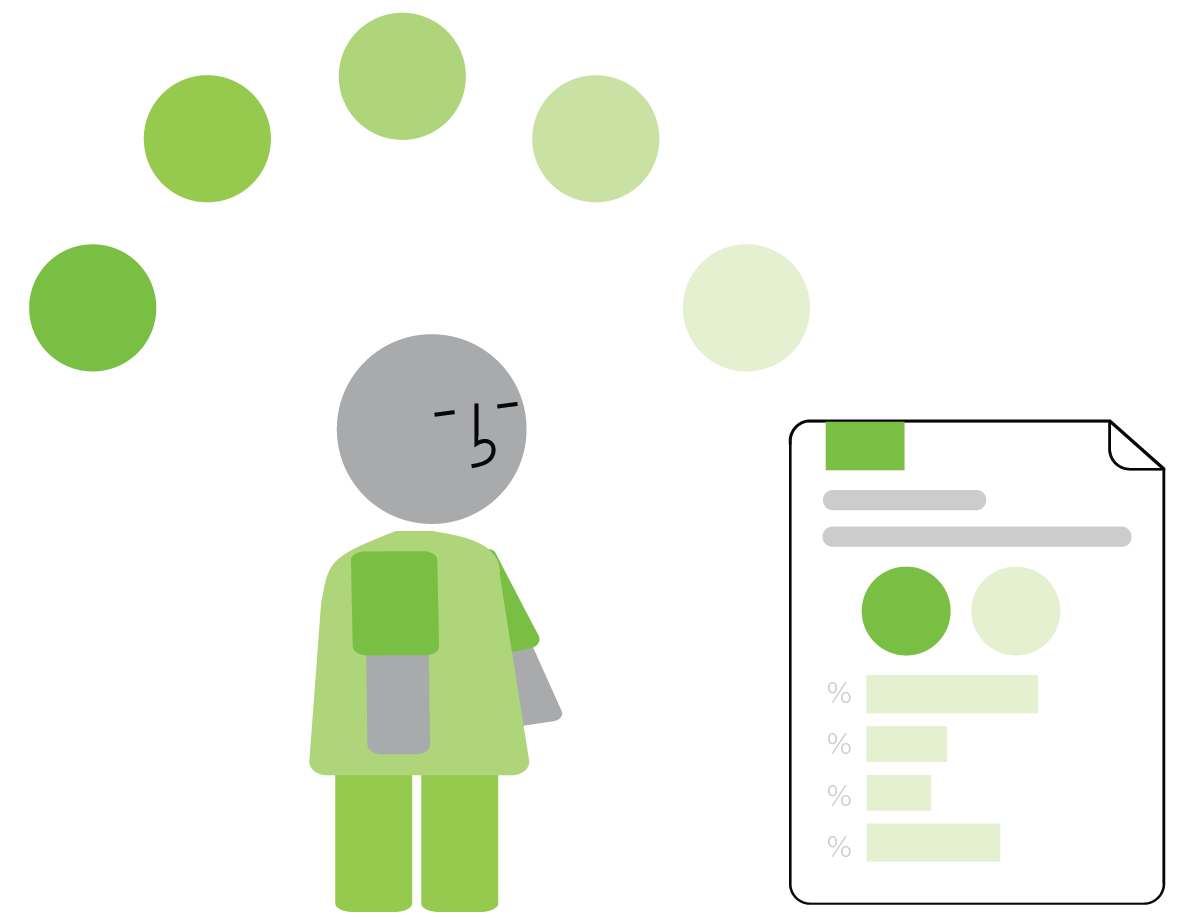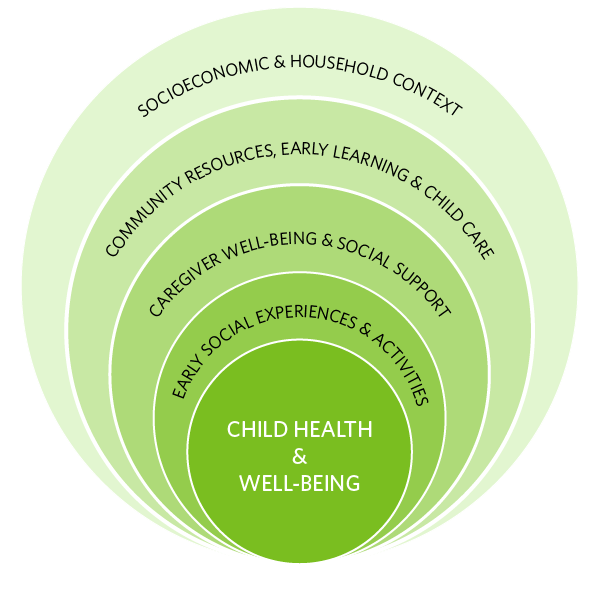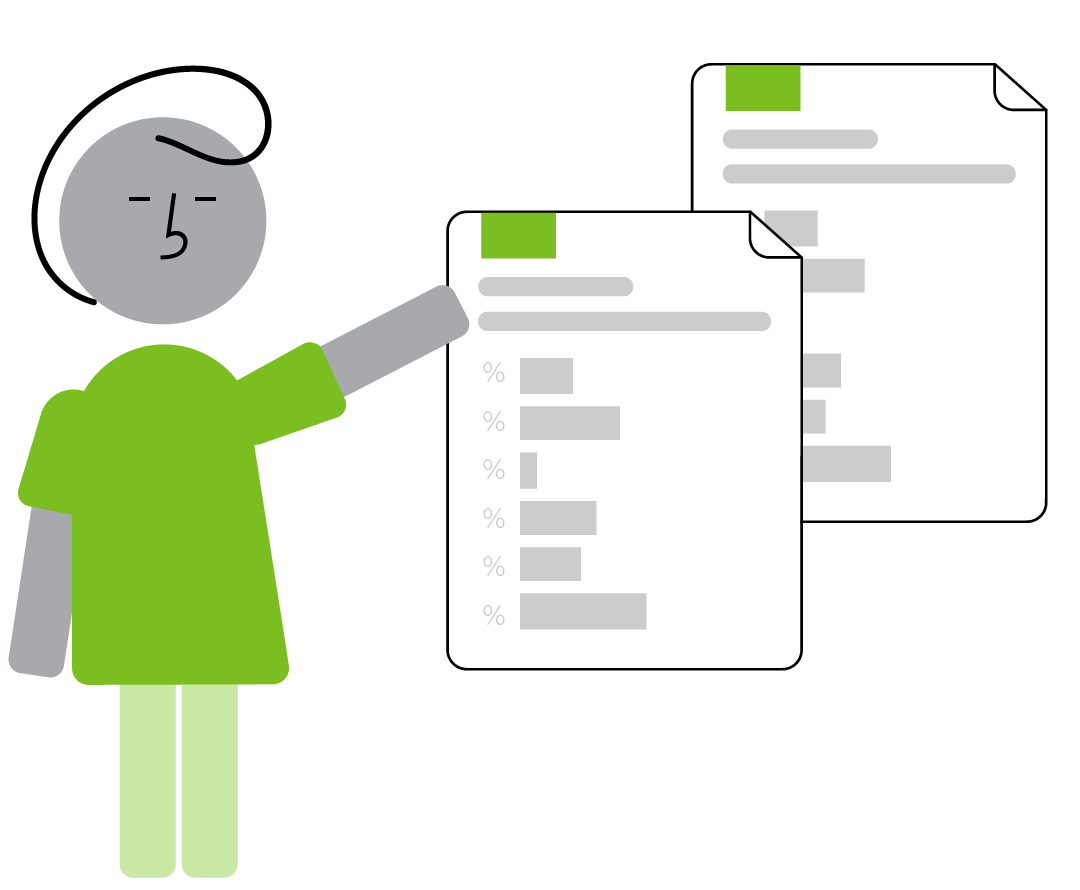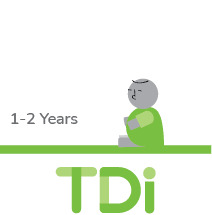

The Toddler Development Instrument: Overview

Improving our understanding of the early experiences, needs, and barriers faced by families with young children in communities across BC.
Parents & Caregivers
Completed by parents/primary caregivers of children aged 1 to 2 years.
Experiences & Contexts
Gathers information about the early experiences and social contexts of young children and their families.
Online Questionnaire
Can be completed onsite or at home online and takes approximately 10-15 minutes to complete.
Bringing Data into Action
Group-level data shared with communities with the goal of bringing data to action at a local and/or regional level.
TDI Does NOT...
assess individual children.
TDI is Voluntary
Participation in the TDI is voluntary.
What is the TDI?
The Toddler Development Instrument (TDI) is a questionnaire completed by parents or caregivers of children aged 12-24 months that asks about the early experiences and environments of children and their families. It can be completed either online or on paper and takes 10-15 minutes to complete. Typically, information about the TDI is distributed within a range of early years services and programs including immunization clinics, Strong Starts, drop-in play groups and child care centres. Parents and caregivers are invited to complete the TDI onsite or at home online.

TDI Topics
The TDI includes questions related to the following:
- Daily physical activity, nutrition, screen time, and sleep habits;
- Contact with the health care system, dental care and immunizations;
- Early social experiences, including interactions with caregivers, other children, and play;
- Child care arrangements, access and use of early learning and care programs; and,
- Family demographics, community connectedness and supports.
TDI data are solely used at an aggregate level (e.g., the community). The TDI is not meant to evaluate individual children, families, or parenting practices. Information collected through the TDI helps community partners better understand and support children and families in their communities.

TDI Data Collection
Development of the TDI began in 2012 in collaboration with a diverse group of early years stakeholders including parents and caregivers, service providers, and child development researchers. The development process involved extensive research, expert consultation, and focus groups with caregivers of young children and family service providers. In 2017, the TDI was first piloted in ten communities through a range of early years programs and services across BC, collecting responses from nearly 500 families. In the most recent pilot, between 2019-2020, six communities participated with over 1200 parents and caregivers completing a TDI.
The TDI is still in the development phase. This collaborative work is guided by a Research Forum Advisory (child development experts), an Early Childhood Development Practice and Policy Advisory (professionals leading early years services in BC), as well as the Aboriginal Steering Committee at HELP.
What happens to the information provided by parents/caregivers?
Information about Child and Family Experiences and Context
Reponses to the questions about the experiences and environments of the child and their family are grouped together, stripped of any identifying information and summarized at the community level. These data can be used by community, health, municipal and government partners for community development and service planning purposes.
Private Information
Information gathered through the TDI about family employment, education and income is confidential. Identifying information is removed from these responses and these data are grouped together and used for research purposes only.

How is the information collected by the TDI protected?
To ensure personal information is secure, the Human Early Learning Partnership has strong measures in place and follows all rules, agreements, practices, and legislation for safeguarding data. To learn more about HELP data protection and the Five Safes’ framework for HELP research, please visit our Safeguarding Data page.
TDI Reports
Information collected using the TDI is both comprehensive and actionable, and can be used to ensure that children have the opportunities and experiences they need to learn and grow. HELP has distributed TDI data summary reports to participating pilot communities. There are no publicly available reports at this time.

Widening the Lens: TDI and The Child Development Monitoring System
The TDI is part of the Child Development Monitoring System – a collection of tools designed to gather data at critical transition times in childhood. Along with the TDI, the Monitoring System includes the Childhood Experiences Questionnaire (CHEQ), the Early Development Instrument (EDI), the Middle Years Development Instrument (MDI), and the Youth Development Instrument (YDI).
Completed by parents and caregivers of toddlers, the TDI is a unique addition to the Monitoring System in that the partnerships established for implementation extend beyond schools and school districts to a wide range of community-based early years services and programs including health, education, and family services. Used together, the TDI, CHEQ and EDI can offer rich information about how children’s early experiences and environments influence their developmental outcomes. Learn more about Monitoring System.
Key TDI Contacts

Martin Guhn
Associate Professor






